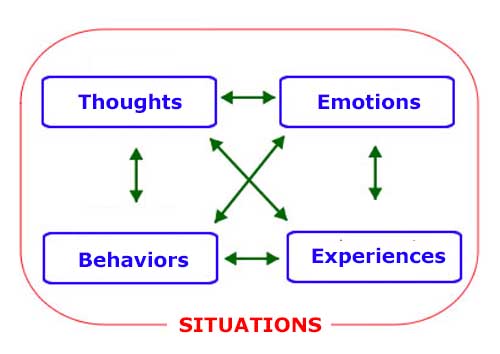
Questions to Reflect On
What is COGNITION?
____________________________________________________________________________________
Case Study - Dr. David Burns (the birth of his son). What thoughts did he have? How was he feeling? How did this affect his behavior? How did he change those thoughts? How did this affect outcomes?
____________________________________________________________________________________________________________________________________________________________________________________________________________________________________________________________
How do you think thoughts have influenced your behavior? Give an example of the thought – feeling – action sequence in your experience.
____________________________________________________________________________________________________________________________________________________________________________________________________________________________________________________________
What is negative self talk?__________________________________________________________________________________________________________________________________________________________________________________________________________
How does negative self talk impact your recovery?
__________________________________________________________________________________________________________________________________________________________________________________________________________
How could/should you change this?
__________________________________________________________________________________________________________________________________________________________________________________________________________